The Onsen Resorts of Hijiori
Hot Spring Resorts in Hijiori Onsen
Over three hundred years ago, area farmers collectivized and founded Hijiori Onsen resort. Ever since, every ryokan within the town is a family-run affair, and outside chain hotel companies are non-existent. Wherever your stay, you’re sure to find an intimate experience and the kind of omotenashi-hospitality and painstaking attention to detail for which Japan is known worldwide. Keeping with the great tradition of Japanese ryokan, overnight stays typically include homemade multi-course meals, as wells as a traditional yukata (bathrobe) and geta (wooden sandals), both of which you may roam the town in as you please! Find a ryokan that suits your style here.
Onsen Resorts
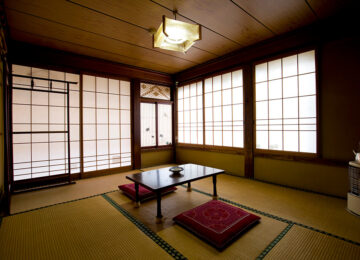
Kameya
Get a taste of nostalgia with the old-world charm of Kameya Ryokan. Depending on their location and geologic characteristics, the elemental properties of Hijiori Onsen’s many hot springs vary, and so too their purported ameliorating potential. At Kameya, you’ll find water for the Kotoyu spring, the same spring that once healed an injured priest’s broken elbow and gave Hijiori Onsen its reputation as a healing center.
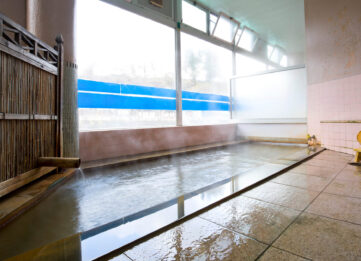
Denzou
Whatever the season, Ryokan Denzou is a quiet, comfortable choice for your stay in Hijiori Onsen.
This hotel looks out over the main street as well as the languid Dozan river. Onsen amenities include both private and shared baths.
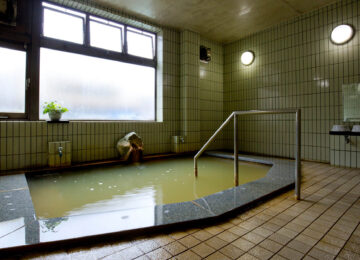
Ebisuya
As you enter this natural cedar-hewn hotel, jazz wafts through the lobby and a fire crackles in the wood stove. These are just the beginning of the creature comforts you’ll find at Ebisuya.
Restored in 2015, beautiful renovated onsen baths are perfect way to relax after a good, long mountain hike. Dinner includes local delicacies, among which a variety of healthy mountain foraged vegetables, picked by the owner himself.

Maruya
You’ll find the height of luxury at the retro-modern Maruya hotel. Beautiful private and shared baths built out of charred cedar and mulberry bring about an extravagantly rustic experience, while the soft green-grass scent of tatami fills your lodging quarters. Maruya is a surefire hit for a romantic getaway.
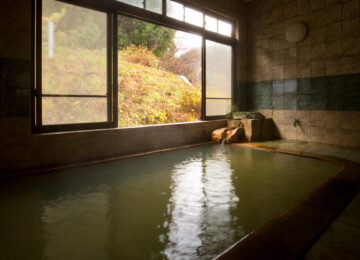
Kimuraya
This intimate six-room ryokan offers views overlooking the mountains, a second-floor Observation bath, and shared and private baths inside. Meals are lovingly prepared using local produce, as well as foraged vegetables and mushrooms. A variety of accommodation and meal plans are available.
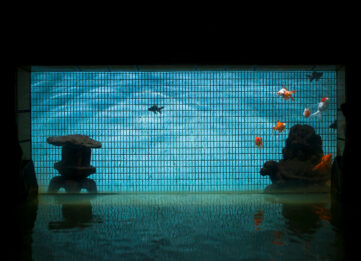
Nishimotoya
Find peace of mind and body at this incredible ryokan, while enjoying its unique onsen options. One bath made of natural stone has been crafted to evoke the rugged caldera to which Hijiori Onsen calls home. In another onsen, you can watch as goldfish swim about you languidly (in their own pool, of course).
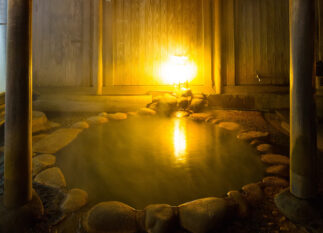
Kangetsu
Luxuriate in the open-air hot spring bath overlooking the Dozan River, while listening to the tranquil rush of the current below.
Kumon also takes great pride in its seasonal cuisine, culinary creations that make the most out of Okura-mura’s bounteous farmland. Enjoy some of the region’s most famous delicacies such as Yamagata beef and Sangen pork as well.
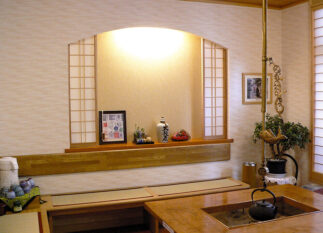
Daikokuya
This beautiful Taisho Era ryokan was completely restored in 2005 and has been repaired to be maximally accessible for those with wheelchairs or other disabilities.
Multiple private and mixed baths are available. Many guests enjoy shopping at the early morning market and designing their own meals, making use of the open kitchen available to all lodgers.
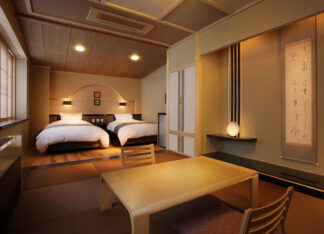
Otomoya
Otomoya Ryokan has stood since the days of Edo Japan and retains that classic charm. Wide, marbled onsen pools are flooded with natural light and the scent of its wood-paneled walls soothes the senses.
Dinners are prepared fresh from the day’s harvest, and dining areas include recessed tables and tatami, for those who find sitting on the floor (Japanese-style) uncomfortable.
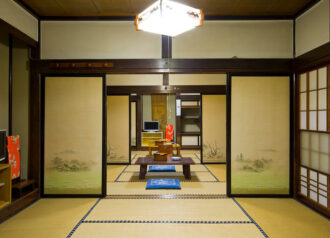
Miuraya
Get a sense of history at this old-fashioned ryokan, whose waters feed from its namesake, the Miyura spring. Mixed bathing pools are available, along with private baths which can be reserved. Several large, traditional Japanese rooms, separated by sliding doors which can be opened to make single larger rooms, are the perfect option for families visiting together.
Reservations only via direct phone call.
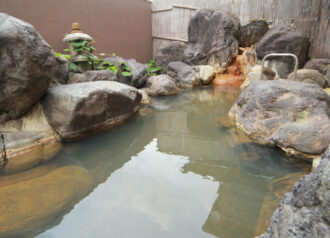
Matsui
A ryokan steeped in history; you can see very old photos of the early days of the hotel in the main hall.Culinary specialties include freshly fragrant mountain vegetables, mushrooms, and fish caught straight from the river. Matsui's breakfast features various regional specialties including freshly hand pounded mochi that you can mix azuki or natto with.
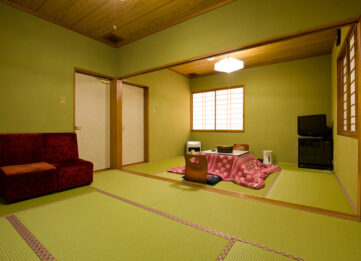
Saitou
You’ll feel like part of the family at Saito Ryokan, and it’s onsen, sourced from the Uchiyu spring, will soothe your weary bones. Smaller onsen baths mean the water is always running fresh through the tub. The chef at Saito makes the most of seasonal ingredients, but you are also free to use the kitchen yourself and prepare dishes from items picked up at the morning market.
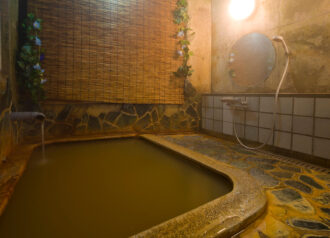
Tamanoya
One of the smaller ryokan in Hijiori Onsen, this intimate six-room hotel prides itself in attention to detail and hospitality. You can enjoy the invigorating power of Hijiori’s spring waters to their fullest in one of the several on-premises onsen baths. Locally produced ingredients are prepared with a focus on healthfulness and well-being.
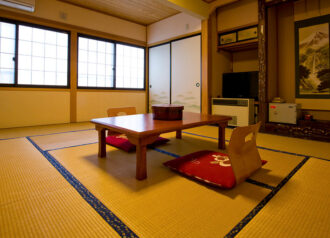
Yuzou
This family run inn puts its heart into hospitality for every guest. The onsen baths may be cozy, but they are always full of fresh running waters and available twenty-four hours. The hotel even uses its hot spring water to heat the building through the winter months. With a focus on local foods, such as mountain vegetables and mushrooms, as wells as produce grown sustainably on nearby farms, dining at Yuzou is always a delight.
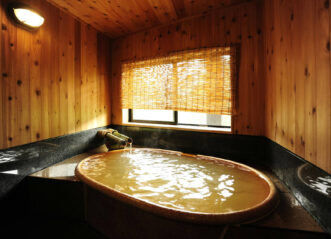
Motokawarayu
Enjoy the warmth of a traditional mountain inn and Japanese cooking hearth with its cast iron kettle piping above the fire. Motokawarayu offers a dreamy ambiance along with one of the most beautiful private baths in the village, a large handmade Shagaraki ceramic tub. Other outdoor baths let you listen to the river below and look out over the mountains. Dinner is served around a traditional cooking hearth and focuses on local fare which include local favorites, such as natto and azuki.
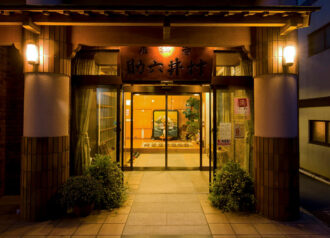
Wakamatsuya Murai Rokusuke
Since the latter half of the Edo period, this ryokan has been in operation using the Hijiori spring to feed its healing pools. 60 years ago, another seep opened beneath the building and water from the Murai spring came suddenly welling up. Nowdays patrons can enjoy both waters in various baths in the hotel.
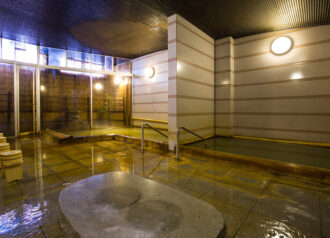
Tsutaya Hijiori Hotel
An annex to the larger Tsutaya hotel, the two are connected on the second floor. Both buildings include well-furnished hot spring amenities, and special lodging and meal plans. With a focus of foods cultivated from the mountains and rivers, guest favorites include the savory autumn imonoko soup, as well as Tsutaya’s famous winter hot pots.
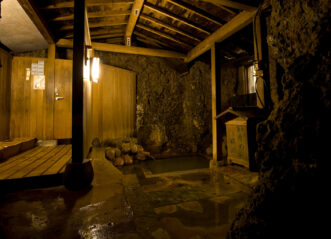
Matsuya
This landmark inn includes an extraordinary cave onsen accessed by a 40-meter-deep tunnel. The tunnel was dug by hand in the Taisho Era. As you soak in its clear waters, surrounded by earthen stone, you’ll feel as if you’ve entered the heart of the caldera.
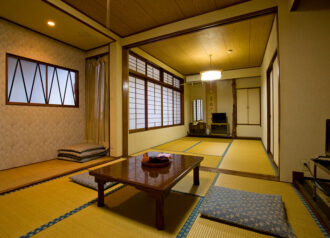
Miharuya
The morning market runs right along the front of this old-fashioned ryokan, the hotel sports several interesting onsen. The Sanharuya spring feeds the onsen on the first floor, while the Takinoyu spring is pumped up to bathing pools on the third floor. Simple, natural foods focus on the bounty of the mountain, and nourish both the body and the spirit.
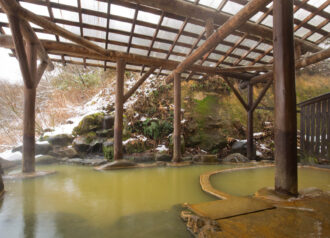
Kinseikan
Located just two minutes outside Hijiori Onsen, Kinseikan is unique in that its onsen does not require its natural temperatures to be cooled. The lodge boasts both an indoor and outdoor, ground-level onsen, perfect for enjoying the different seasons. Patrons often enjoy alternating between the two baths, as the effect of the temperature change can be invigorating. Seasonal vegetables are always on the menu, and Kinseikan allows guests to truly get away from it all.
